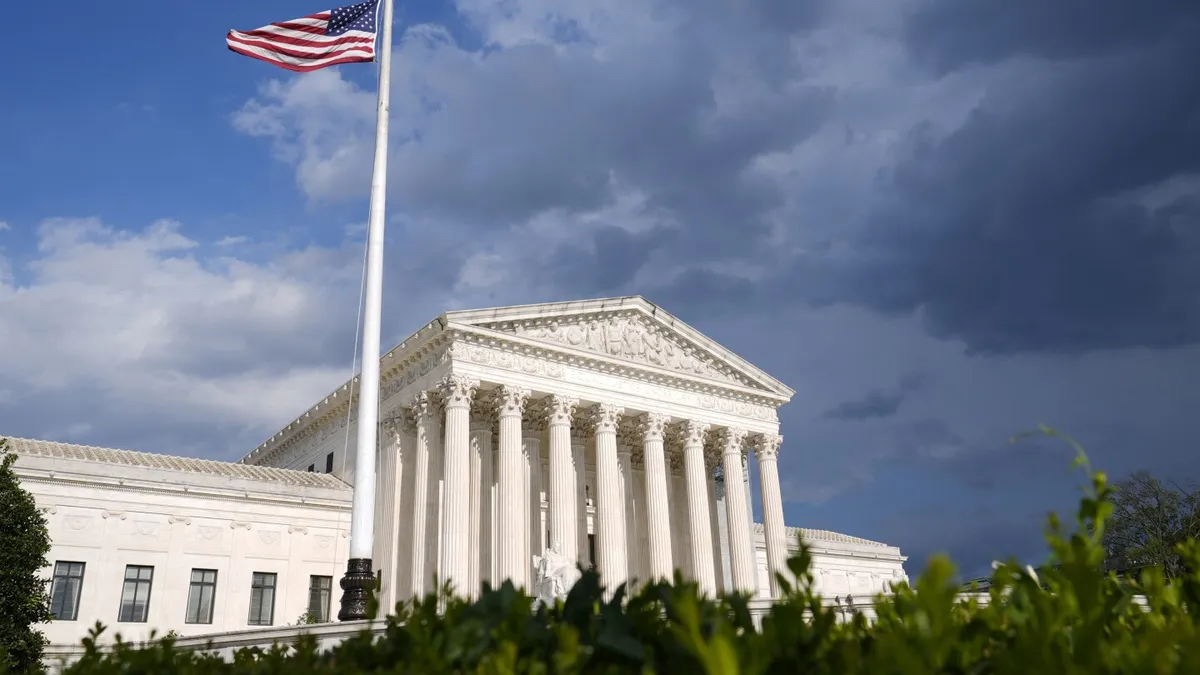
WASHINGTON (AP) — On Friday, the Supreme Court temporarily maintained the position of the head of the federal agency responsible for protecting government whistleblowers. This decision marks the Court's initial response to the numerous legal challenges surrounding former President Donald Trump’s second-term agenda.
The justices, in an unsigned order, stated that Hampton Dellinger, the head of the Office of Special Counsel, is allowed to remain in his position at least until Wednesday. This is when a lower court's order, which temporarily protects him, is set to expire.
With a narrow majority of five justices, the Supreme Court did not definitively grant or reject the administration’s request to immediately remove Dellinger. Instead, the Court chose to hold the request in abeyance, noting that the order would expire soon.
U.S. District Judge Amy Berman Jackson has scheduled a hearing on Wednesday to decide whether to extend her order keeping Dellinger in his position. Depending on her decision, the justices could revisit the case.
Conservative justices Neil Gorsuch and Samuel Alito supported the administration, expressing doubts about whether courts have the authority to reinstate someone the president has fired. Gorsuch noted that while some presidentially appointed officials have challenged their removal, they typically seek remedies such as backpay rather than injunctive relief like reinstatement.
Conversely, liberal justices Sonia Sotomayor and Ketanji Brown Jackson were inclined to reject the administration’s request entirely.
The conservative-dominated Court has previously upheld a strong view of presidential power. This includes a decision from last year that provided presidents with immunity from prosecution for actions taken while in office.
The Justice Department employed assertive language in urging the Court to permit the termination of the head of this relatively obscure federal agency. Acting Solicitor General Sarah Harris argued that the lower court had crossed “a constitutional red line” by blocking Dellinger’s dismissal and preventing Trump from shaping the agenda of an executive-branch agency during the administration’s critical early days.
The Office of Special Counsel is tasked with protecting the federal workforce from illegal personnel actions, such as retaliation against whistleblowers. The leader of this office “may be removed by the president only for inefficiency, neglect of duty, or malfeasance in office.”
Dellinger, who was appointed by Democratic President Joe Biden and confirmed by the Senate to a five-year term in 2024, expressed gratitude for being able to continue his work. “I am pleased to continue my work as an independent government watchdog and whistleblower advocate,” Dellinger stated. “I thank the judges and justices who have concluded that I should remain in my role while the courts determine my office’s independence from direct political control.”
Harris emphasized that the Court should use this case to set a precedent and check federal judges who, in recent weeks, have halted numerous presidential actions that encroached on Trump’s presidential powers.
The Court has already narrowed the scope of a 1935 ruling, known as Humphrey’s Executor, which protected presidentially appointed and Senate-confirmed leaders of independent agencies from arbitrary dismissals.
Conservative justices have questioned limits on the president’s ability to remove agency heads. Notably, in 2020, the Court upheld Trump’s first-term dismissal of the head of the Consumer Financial Protection Bureau by a 5-4 vote. Chief Justice John Roberts noted, “the President’s removal power is the rule, not the exception.” However, he also suggested that the Court might view efforts to remove the whistleblower watchdog differently, given its limited jurisdiction.
The new administration has indicated intentions to overturn the Humphrey’s Executor decision entirely. Trump has targeted individuals on multimember boards overseeing various federal agencies, including the National Labor Relations Board and the Merit System Review Board. Like Dellinger, these individuals were confirmed to specific terms, and federal laws protect them from arbitrary firings. Lower courts have so far blocked some of these dismissals.